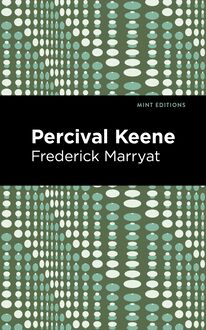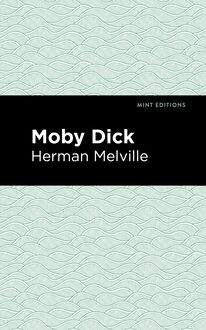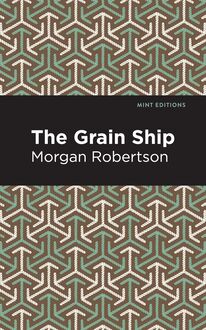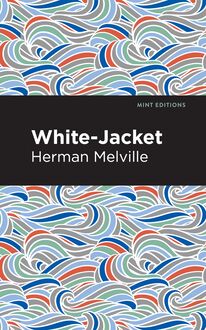-
 Univers
Univers
-
 Ebooks
Ebooks
-
 Livres audio
Livres audio
-
 Presse
Presse
-
 Podcasts
Podcasts
-
 BD
BD
-
 Documents
Documents
-
- Cours
- Révisions
- Ressources pédagogiques
- Sciences de l’éducation
- Manuels scolaires
- Langues
- Travaux de classe
- Annales de BEP
- Etudes supérieures
- Maternelle et primaire
- Fiches de lecture
- Orientation scolaire
- Méthodologie
- Corrigés de devoir
- Annales d’examens et concours
- Annales du bac
- Annales du brevet
- Rapports de stage
La lecture à portée de main
Vous pourrez modifier la taille du texte de cet ouvrage
Découvre YouScribe en t'inscrivant gratuitement
Je m'inscrisDécouvre YouScribe en t'inscrivant gratuitement
Je m'inscrisEn savoir plus
Vous pourrez modifier la taille du texte de cet ouvrage
En savoir plus

Description
The Phantom Ship (1839) is a novel by Frederick Marryat. Inspired by the legend of the Flying Dutchman, a fabled ghost ship doomed to sail the seas until the end of time, The Phantom Ship is a tale of adventure and Gothic horror from an author who served for decades in the British Royal Navy. Philip Vanderdecken had always feared this day would come. Raised by his mother in Terneuzen, he had grown accustomed to life without a father. During a voyage around the Cape of Good Hope, the elder Vanderdecken condemned himself to an eternity at the helm of the Flying Dutchman, a legendary vessel doomed to sail the seas without ever touching land. Now a young man, Philip is informed by his dying mother of the possibility of saving his father by letting his spirit rest. Terrified, he promises his mother to carry a relic of the Holy Cross across the globe until he can find the Flying Dutchman. He joins the Dutch East India Company and sets out at once on an adventure filled with romance, magic, and unimaginable horror. Poorly reviewed upon publication, The Phantom Ship has endured as a cult classic and continues to be adored by generations of loyal readers. With a beautifully designed cover and professionally typeset manuscript, this edition of Frederick Marryat’s The Phantom Ship is a classic of British literature reimagined for modern readers.
Sujets
Informations
| Publié par | Mint Editions |
| Date de parution | 08 juin 2021 |
| Nombre de lectures | 0 |
| EAN13 | 9781513294285 |
| Langue | English |
| Poids de l'ouvrage | 1 Mo |
Informations légales : prix de location à la page 0,0500€. Cette information est donnée uniquement à titre indicatif conformément à la législation en vigueur.
Extrait
The Phantom Ship
Frederick Marryat
The Phantom Ship was first published in 1839.
This edition published by Mint Editions 2021.
ISBN 9781513291437 | E-ISBN 9781513294285
Published by Mint Editions®
minteditionbooks.com
Publishing Director: Jennifer Newens
Design & Production: Rachel Lopez Metzger
Project Manager: Micaela Clark
Typesetting: Westchester Publishing Services
C ONTENTS P REFATORY N OTE I II III IV V VI VII VIII IX X XI XII XIII XIV XV XVI XVII XVIII XIX XX XXI XXII XXIII XXIV XXV XXVI XXVII XXVIII XXIX XXX XXXI XXXII XXXIII XXXIV XXXV XXXVI XXXVII XXXVIII XXXIX XL XLI XLII
P REFATORY N OTE
T HE P HANTOM S HIP is the most notable of the three novels constructed by Marryat on an historic basis, and like its predecessor in the same category, Snarleyyow , depends largely for its interest on the element of diablerie , which is very skilfully manipulated. Here, however, the supernatural appearances are never explained away, and the ghostly agencies are introduced in the spirit of serious, if somewhat melodramatic, romance. Marryat’s personal experience enabled him, with little research, to produce a life-like picture of old Dutch seamanship, and his powers in racy narrative have transformed the Vanderdecken legend into a stirring tale of terror. The plot cannot be called original, but it is more carefully worked out and, from the nature of the material at hand, more effective than most of Marryat’s own. He has put life into it, moreover, by the creation of some genuine characters, designed for nobler ends than to move the machinery.
Amine, indeed, as Mr. Hannay points out, “is by far his nearest approach to an acceptable heroine.” Her romantic and curiously superstitious disposition is admirably restrained by strength of will and true courage. The scenes of the Inquisition by which she meets her death are forcibly described. Philip Vanderdecken is a very respectable hero; daring, impetuous, and moody, without being too improbably capable. The hand of destiny lends him a dignity of which he is by no means unworthy. Krantz, the faithful friend, belongs to a familiar type, but the one-eyed pilot is quite sufficiently weird for the part he has to play. For the rest we have the usual exciting adventures by sea and land; the usual “humours,” in this case certainly not overdone. The miser Dr. Poots; the bulky Kloots, his bear, and his supercargo; Barentz and his crazy lady-love the Vrow Katerina ; and the little Portuguese Commandant provide the reader with a variety of good-natured entertainment. It was an act of doubtful wisdom, perhaps, to introduce a second group of spirits from the Hartz mountains, but the story of the weir-wolves is told simply, without any straining after effect.
The general success, however, is marred by certain obvious failures in detail. The attempt to produce an historic flavour by making the characters, during their calmer moments, talk in would-be old English is more amusing than culpable; but the author’s philosophy of the unseen, as expounded by Amine or Krantz, is both weak and tiresome, and his religious discourses, coloured by prejudice against the Romanists, are conventional and unconvincing. The closing scene savours of the Sunday-school.
But these faults are not obtrusive, and the novel as a whole must take a high place among its author’s second-best.
The Phantom Ship appeared in The New Monthly Magazine , 1838, 1839. It is here reprinted from the first edition, in three volumes. Henry Colburn, 1839.
R.B.J.
I
A bout the middle of the seventeenth century, in the outskirts of the small but fortified town of Terneuse, situated on the right bank of the Scheldt, and nearly opposite to the island of Walcheren, there was to be seen, in advance of a few other even more humble tenements, a small but neat cottage, built according to the prevailing taste of the time. The outside front had, some years back, been painted of a deep orange, the windows and shutters of a vivid green. To about three feet above the surface of the earth, it was faced alternately with blue and white tiles. A small garden, of about two rods of our measure of land, surrounded the edifice; and this little plot was flanked by a low hedge of privet, and encircled by a moat full of water, too wide to be leaped with ease. Over that part of the moat which was in front of the cottage door, was a small and narrow bridge, with ornamented iron hand-rails, for the security of the passenger. But the colours, originally so bright, with which the cottage had been decorated, had now faded; symptoms of rapid decay were evident in the window-sills, the door-jambs, and other wooden parts of the tenement, and many of the white and blue tiles had fallen down, and had not been replaced. That much care had once been bestowed upon this little tenement, was as evident as that latterly it had been equally neglected.
The inside of the cottage, both on the basement and the floor above, was divided into two larger rooms in front, and two smaller behind; the rooms in front could only be called large in comparison with the other two, as they were little more than twelve feet square, with but one window to each. The upper floor was, as usual, appropriated to the bedrooms; on the lower, the two smaller rooms were now used only as a wash-house and a lumber-room; while one of the larger was fitted up as a kitchen, and furnished with dressers, on which the metal utensils for cookery shone clean and polished as silver. The room itself was scrupulously neat; but the furniture, as well as the utensils, were scanty. The boards of the floor were of a pure white, and so clean that you might have laid anything down without fear of soiling it. A strong deal table, two wooden-seated chairs, and a small easy couch, which had been removed from one of the bedrooms upstairs, were all the movables which this room contained. The other front room had been fitted up as a parlour; but what might be the style of its furniture was now unknown, for no eye had beheld the contents of that room for nearly seventeen years, during which it had been hermetically sealed, even to the inmates of the cottage.
The kitchen, which we have described, was occupied by two persons. One was a woman, apparently about forty years of age, but worn down by pain and suffering. She had evidently once possessed much beauty: there were still the regular outlines, the noble forehead, and the large dark eye; but there was a tenuity in her features, a wasted appearance, such as to render the flesh transparent; her brow, when she mused, would sink into deep wrinkles, premature though they were; and the occasional flashing of her eyes strongly impressed you with the idea of insanity. There appeared to be some deep-seated, irremovable, hopeless cause of anguish, never for one moment permitted to be absent from her memory: a chronic oppression, fixed and graven there, only to be removed by death. She was dressed in the widow’s coif of the time; but although clean and neat, her garments were faded from long wear. She was seated upon the small couch which we have mentioned, evidently brought down as a relief to her, in her declining state.
On the deal table in the centre of the room sat the other person, a stout, fair-headed, florid youth of nineteen or twenty years old. His features were handsome and bold, and his frame powerful to excess; his eye denoted courage and determination, and as he carelessly swung his legs, and whistled an air in an emphatic manner, it was impossible not to form the idea that he was a daring, adventurous, and reckless character.
“Do not go to sea, Philip; oh, promise me that , my dear, dear child,” said the female, clasping her hands.
“And why not go to sea, mother?” replied Philip; “what’s the use of my staying here to starve?—for, by Heaven! it’s little better. I must do something for myself and for you. And what else can I do? My uncle Van Brennen has offered to take me with him, and will give me good wages. Then I shall live happily on board, and my earnings will be sufficient for your support at home.”
“Philip—Philip, hear me. I shall die if you leave me. Whom have I in the world but you? O my child, as you love me, and I know you do love me, Philip, don’t leave me; but if you will, at all events do not go to sea.”
Philip gave no immediate reply; he whistled for a few seconds, while his mother wept.
“Is it,” said he at last, “because my father was drowned at sea, that you beg so hard, mother?”
“Oh, no—no!” exclaimed the sobbing woman. “Would to God—”
“Would to God what, mother?”
“Nothing—nothing. Be merciful—be merciful, O God!” replied the mother, sliding from her seat on the couch, and kneeling by the side of it, in which attitude she remained for some time in fervent prayer.
At last she resumed her seat, and her face wore an aspect of more composure.
Philip, who, during this, had remained silent and thoughtful, again addressed his mother.
“Look ye, mother. You ask me to stay on shore with you, and starve,—rather hard conditions:—now hear what I have to say. That room opposite has been shut up ever since I can remember—why, you will never tell me; but once I heard you say, when we were without bread, and with no prospect of my uncle’s return—you were then half frantic, mother, as you know you sometimes are—”
“Well, Philip, what did you hear me say?” enquired his mother with tremulous anxiety.
“You said, mother, that there was money in that room which would save us; and then you screamed and raved, and said that you preferred death. Now, mother, what is there in that chamber, and why has it been so long shut up? Either I know that, or I go to sea.”
At the commencement of this address of Philip, his mother appeared to be transfixed, and motionless as a statue; gradually her lips separated, and her eyes glared; she seemed to have lost the power of reply; she put her hand to her right side, as if to compres
-
 Univers
Univers
-
 Ebooks
Ebooks
-
 Livres audio
Livres audio
-
 Presse
Presse
-
 Podcasts
Podcasts
-
 BD
BD
-
 Documents
Documents
-
Jeunesse
-
Littérature
-
Ressources professionnelles
-
Santé et bien-être
-
Savoirs
-
Education
-
Loisirs et hobbies
-
Art, musique et cinéma
-
Actualité et débat de société
-
Jeunesse
-
Littérature
-
Ressources professionnelles
-
Santé et bien-être
-
Savoirs
-
Education
-
Loisirs et hobbies
-
Art, musique et cinéma
-
Actualité et débat de société
-
Actualités
-
Lifestyle
-
Presse jeunesse
-
Presse professionnelle
-
Pratique
-
Presse sportive
-
Presse internationale
-
Culture & Médias
-
Action et Aventures
-
Science-fiction et Fantasy
-
Société
-
Jeunesse
-
Littérature
-
Ressources professionnelles
-
Santé et bien-être
-
Savoirs
-
Education
-
Loisirs et hobbies
-
Art, musique et cinéma
-
Actualité et débat de société
- Cours
- Révisions
- Ressources pédagogiques
- Sciences de l’éducation
- Manuels scolaires
- Langues
- Travaux de classe
- Annales de BEP
- Etudes supérieures
- Maternelle et primaire
- Fiches de lecture
- Orientation scolaire
- Méthodologie
- Corrigés de devoir
- Annales d’examens et concours
- Annales du bac
- Annales du brevet
- Rapports de stage




















